7 Struggling Companies in Retreat Mode
The economy's as strong as it's been in years, and corporate earnings have collectively been even better than expected.


Profit and prosper with the best of Kiplinger's advice on investing, taxes, retirement, personal finance and much more. Delivered daily. Enter your email in the box and click Sign Me Up.
You are now subscribed
Your newsletter sign-up was successful
Want to add more newsletters?

Delivered daily
Kiplinger Today
Profit and prosper with the best of Kiplinger's advice on investing, taxes, retirement, personal finance and much more delivered daily. Smart money moves start here.

Sent five days a week
Kiplinger A Step Ahead
Get practical help to make better financial decisions in your everyday life, from spending to savings on top deals.

Delivered daily
Kiplinger Closing Bell
Get today's biggest financial and investing headlines delivered to your inbox every day the U.S. stock market is open.

Sent twice a week
Kiplinger Adviser Intel
Financial pros across the country share best practices and fresh tactics to preserve and grow your wealth.

Delivered weekly
Kiplinger Tax Tips
Trim your federal and state tax bills with practical tax-planning and tax-cutting strategies.

Sent twice a week
Kiplinger Retirement Tips
Your twice-a-week guide to planning and enjoying a financially secure and richly rewarding retirement

Sent bimonthly.
Kiplinger Adviser Angle
Insights for advisers, wealth managers and other financial professionals.

Sent twice a week
Kiplinger Investing Weekly
Your twice-a-week roundup of promising stocks, funds, companies and industries you should consider, ones you should avoid, and why.

Sent weekly for six weeks
Kiplinger Invest for Retirement
Your step-by-step six-part series on how to invest for retirement, from devising a successful strategy to exactly which investments to choose.
The economy's as strong as it's been in years, and corporate earnings have collectively been even better than expected. By all accounts, companies—all companies—should be thriving. And most are.
Not every company though. A handful of notable outfits are strangely struggling, choosing to play defense rather than offense. Some are laying workers off. Others are shuttering locations. Still others are selling off underperforming businesses.
Retreating isn't necessarily a bad move. Sometimes it makes strategic sense to take a step back and regroup. Most of the time when a company back-pedals, however, it's a less-than-encouraging clue.
To that end, here's a look at seven noteworthy corporations in retreat mode. For some, the ultimate result may well be a healthier business. Keep an eye on each company's progress to judge for yourself. In none of the cases, though, should shareholders be thrilled about the underlying reasons for the defensiveness.
Stock prices as of Aug. 22. As of this writing, James Brumley did not hold a position in any of the aforementioned securities.
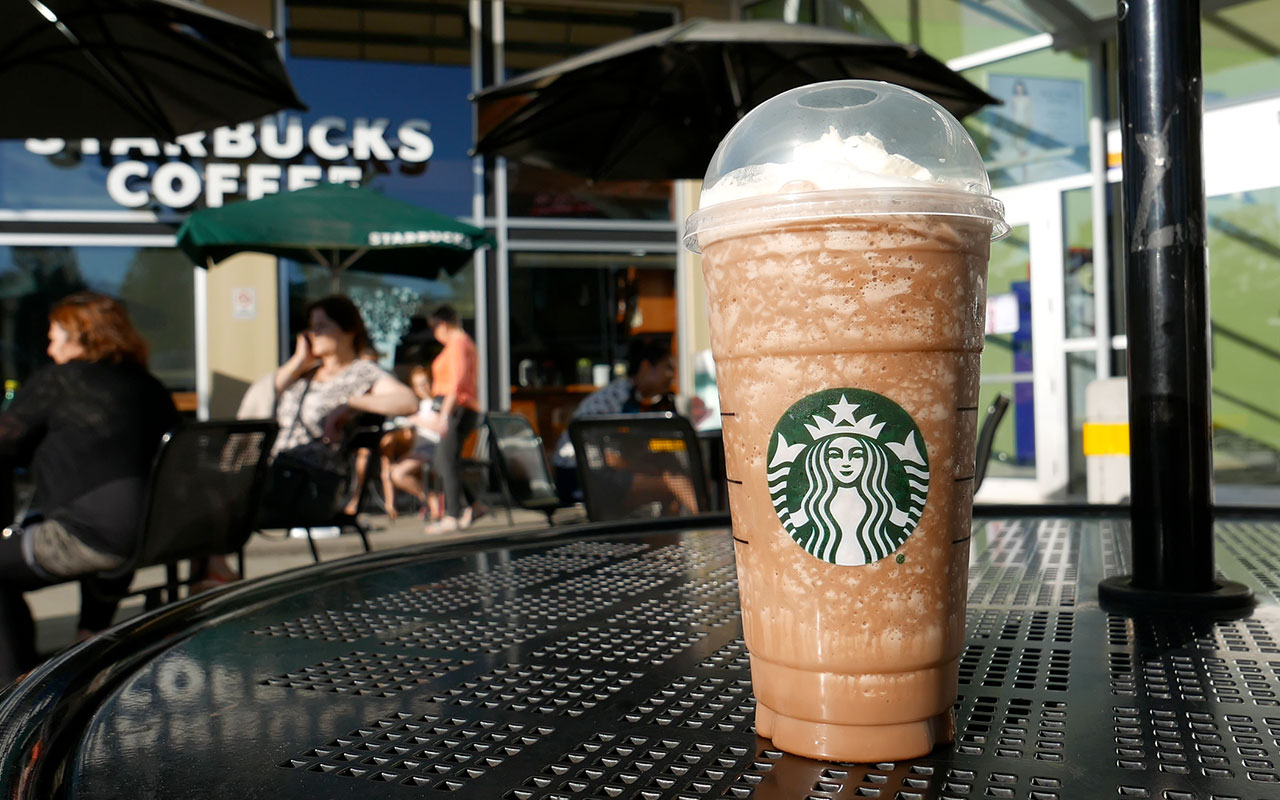
Starbucks
- Share price: $52.82
- 52-week range: $47.37-$61.94
The oft-recycled joke about a Starbucks (SBUX) being found on every street corner in America isn't funny because it's true. Numbering over 14,000, the coffee chain now has more locations in the U.S. than McDonald's (MCD).
The saturation formula worked for a long, long time. As culture changed though, so did health-minded habits. So did consumer preferences for socializing. So did the public's perception of premium-priced coffee. The end result is slowing sales growth, and as of late last year, shrinking operating income. The business just isn't what it used to be, and the company seems unable to give itself a much-needed caffeine jolt.
The next best option is now in play, at least for the time being. Before throwing away good money after bad, in June Starbucks announced it was planning to close approximately 150 stores in 2019, or three times as many as it would normally shutter. It's only a drop in the bucket, so to speak, but it does point to an acknowledgement of a problem that may well accelerate store closure plans in the foreseeable future.
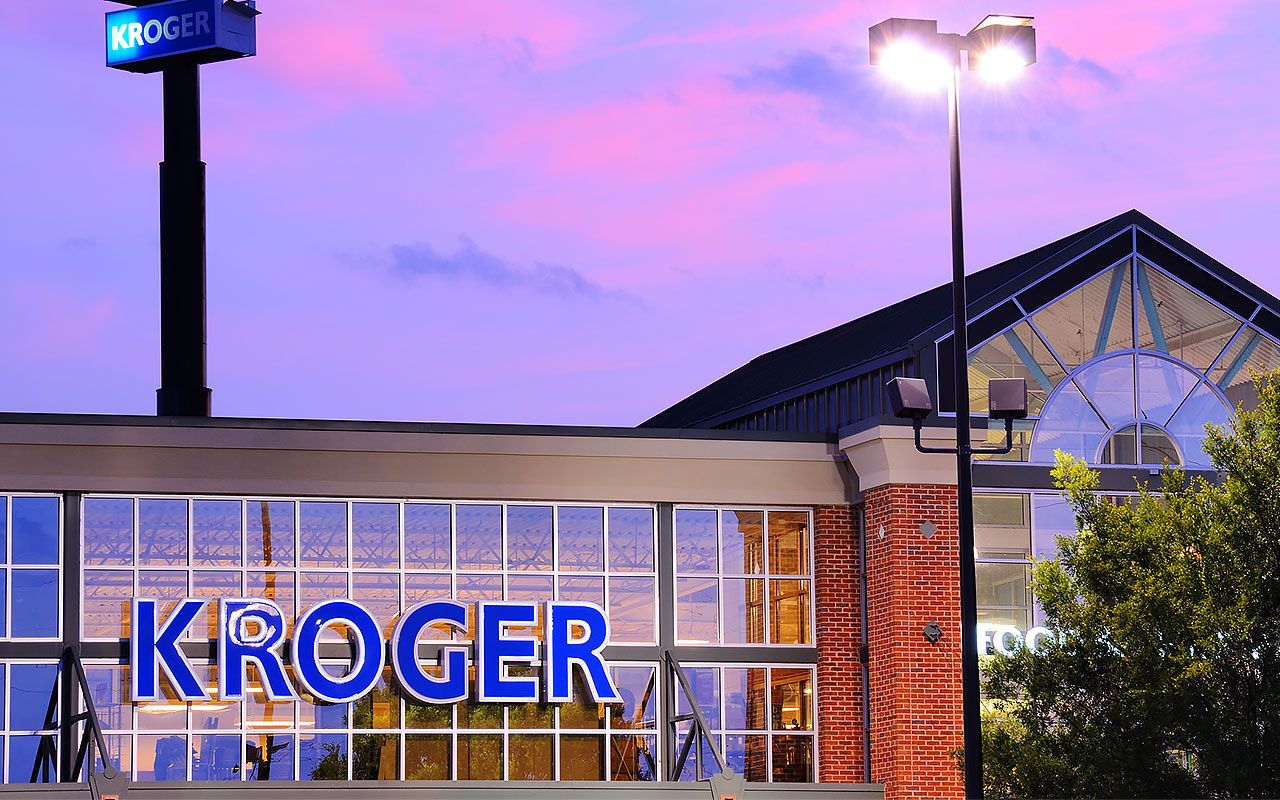
Kroger
- Share price: $31.74
- 52-week range: $19.69-$31.99
Once the name to beat in the grocery business, the past few years have proven tough ones for the nation's largest grocer, Kroger (KR). The reason for the weakening profitability since 2015 is complicated, but it involves better competition including Amazon (AMZN), a growing consumer preference for less mainstream brands, food inflation that can't entirely be passed along to its shoppers, and even food deflation that forces the supermarket chain to dramatically cut prices on certain goods.
The company has navigated around and survived all those pitfalls in the past. But, somehow the impact of them this time around is different in that it's prodded divestitures. Early this year Kroger opted to sell 784 of its convenience stores to British gas-station operator EG Group for a little more than $2 billion, and it recently announced it might sell its Turkey Hill Dairy brand. Kroger is even abandoning hyper-competitive markets, closing all of its remaining Raleigh and Durham, N.C., locations this month rather than looking for new ways to compete.
The business reconfiguration may ultimately streamline Kroger for the better. Given the choice though, many shareholders might prefer management to work to rekindle struggling stores, divisions and brands rather than simply letting go of them.
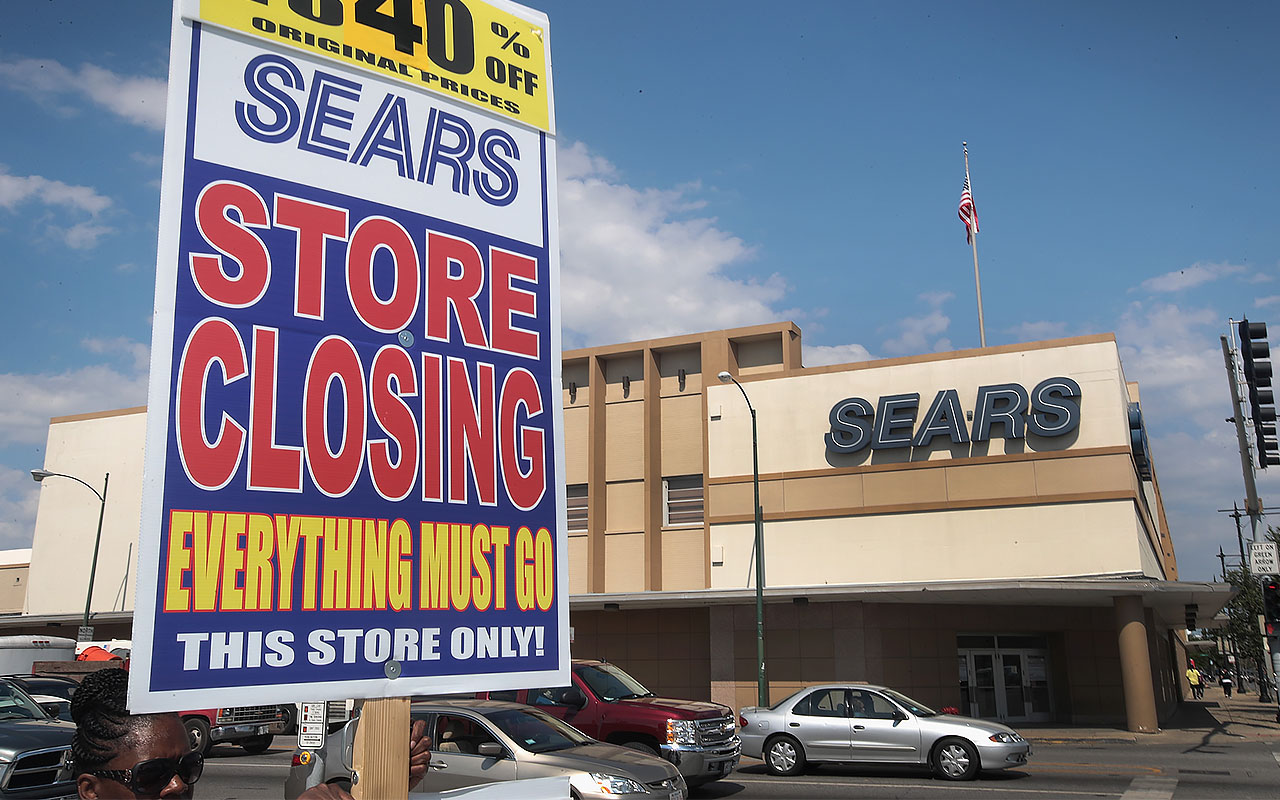
Sears Holdings
The demise of Sears Holdings' (SHLD) namesake stores, as well as its Kmart division, can't be terribly surprising. It was struggling to keep up with competitors even before the rise of Amazon.com. The king of online retailing simply exacerbated the problem.
What is surprising, however, is how long the company has managed to hang on as it sells pieces of itself to raise much-needed cash, with CEO Eddie Lampert still insisting there's a turnaround in store. "Let me be the first one to acknowledge we are on the right path but we haven't gotten over the hump. We need to convert our vision into reality," Lampert said at this year's annual shareholder meeting in May, adding that the matter has been "made much more difficult because the operating performance isn't where it needs to be."
It's true that operating performance isn't where it needs to be, but just as problematic is the fact that Lampert continues to shrink the company's capacity to drive cash flow by selling stores rather than fixing them.
In June, the retailer upped its store-closure plans from 68 to 78 locations, but that was in addition to the 166 closures it had announced last year for 2018. On Thursday, it announced plans to close 13 additional Kmart stores and 33 additional Sears stores. That should pare the count down to below 800 stores, versus the 2,000 Sears and Kmart stores (not counting Sears Canada) that were up and running just four years ago.

General Electric
- Share price: $12.47
- 52-week range: $11.94-$25.30
General Electric (GE) was once an industrial icon. As the world increasingly became a digital place, though, GE struggled to maintain its relevance. Indeed, it's largely been left behind, and it's got the shrinking top and bottom lines to prove it.
What went wrong? It's easy to say the absence of the legendary Jack Welch at the helm is the core problem. Such an explanation oversimplifies the matter, however. Far more problematic may be the fact that conglomerated organizations once benefited from being in a myriad of business lines, but now that complexity has become a liability.
At least that's how relatively new CEO John Flannery seems to see things. Most recently it's been rumored that the company is mulling the sale of a power-conversion business it acquired in 2011, but willing to dump it at half the price it paid for it. Meanwhile, it's been confirmed that Starwood Property Trust (STWD) is going to purchase part of GE Capital's energy finance arm. That sale follows May's news the GE Transportation would be sold off to Westinghouse Air Brake Technologies (WAB).
It remains to be seen if all the deal-making will make the remaining pieces of GE a more effective operation.
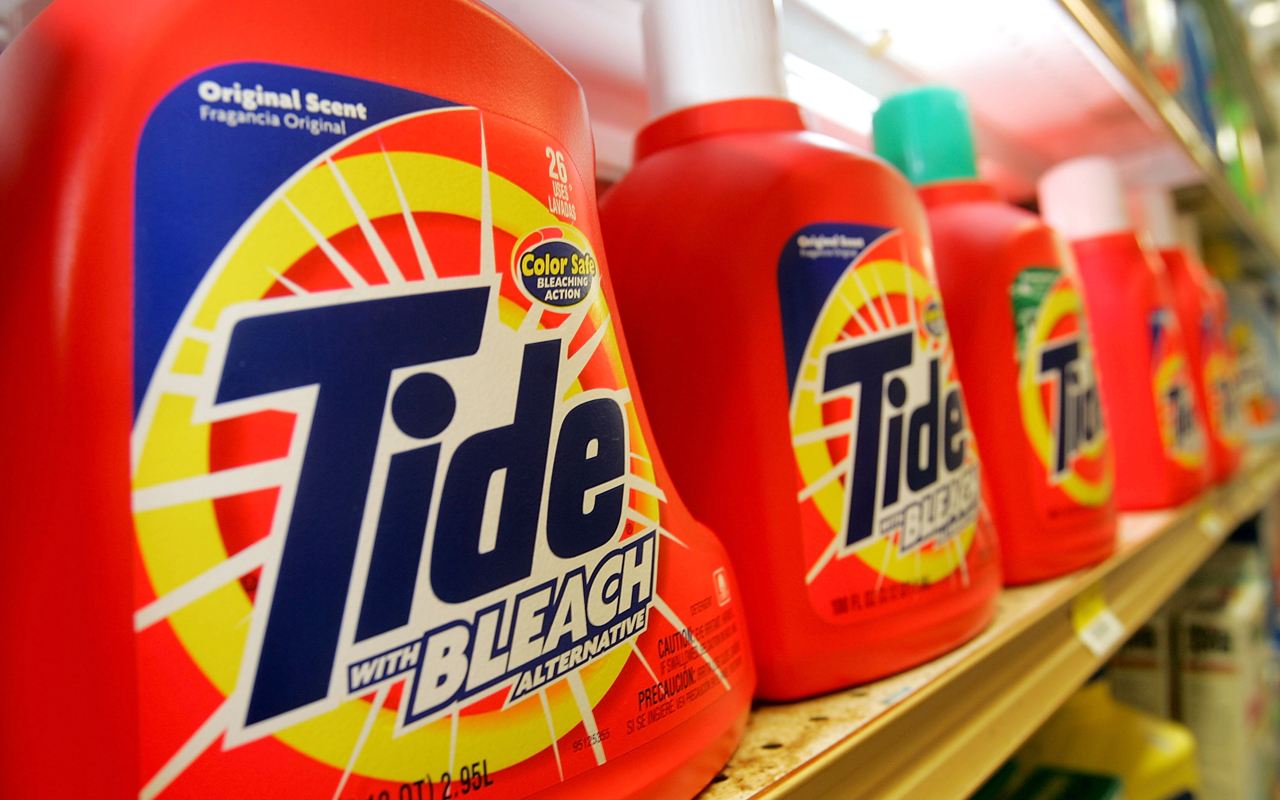
Procter & Gamble
- Share price: $83.39
- 52-week range: $70.73-$94.67
Procter & Gamble (PG) is another conglomerate that leveraged its size and diversity for decades, but found that the advent of the internet and the way it changed consumerism undercut those advantages. Innovation by smaller, hungrier companies is now faster, and it's never been easier for consumers to find alternative products.
So, like GE, P&G has slowly but surely realized it would be better off by not being in so many businesses.
The divestiture party started in earnest in late 2016, when it sold its specialty beauty brands to Coty (COTY), though one could argue 2014's sale of its Duracell battery brand to Berkshire Hathaway (BRK.B) was the beginning of a long streak of business exits.
CEO David Taylor, who took the helm in late 2015, hasn't pushed asset sales as firmly as his predecessor did, though he didn't need to. And, he certainly didn't undo the plan to shed as many as 100 of P&G's brands either... a plan that's for the most part completed. In fact, Taylor has directed a couple of acquisitions. In April, for instance, the company announced it would be acquiring the consumer health business of Germany's Merck.
As was the case with GE, it's not clear if the reconfigured P&G is better than the old one.
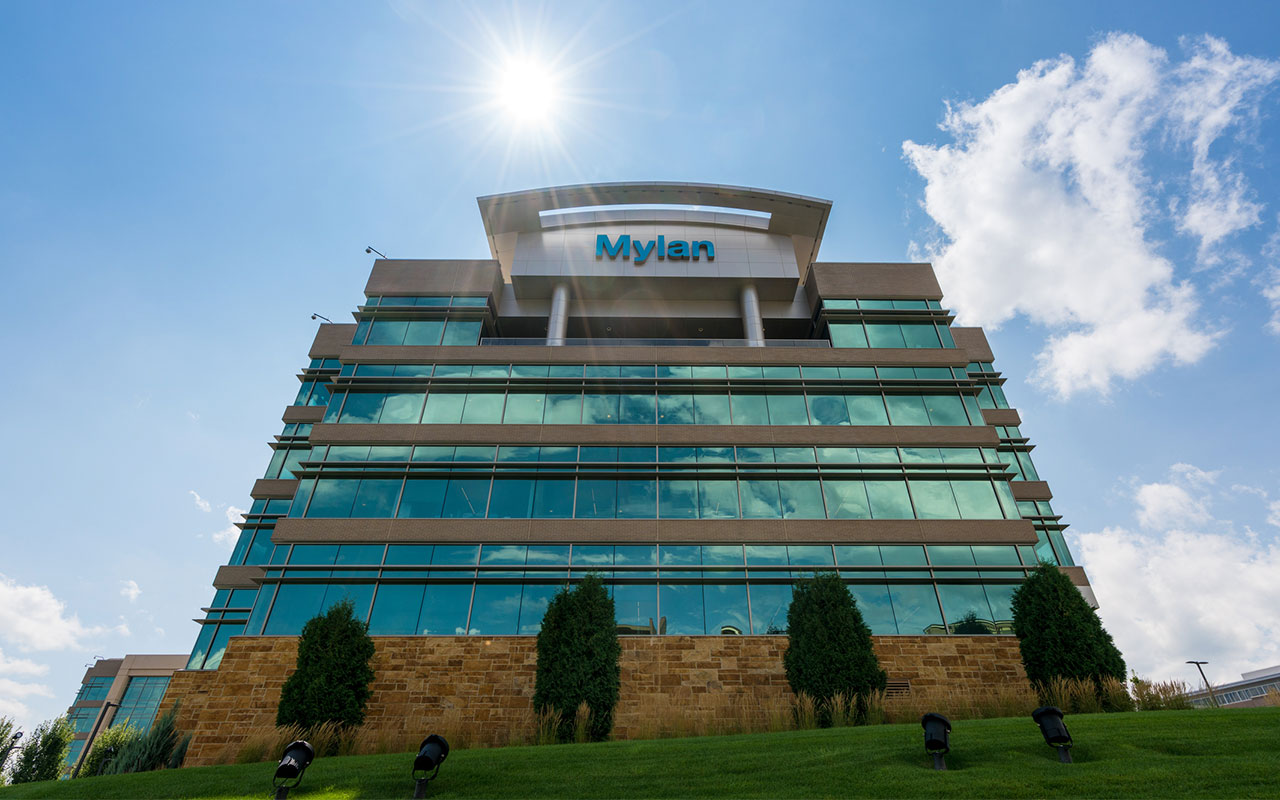
Mylan
- Share price: $38.57
- 52-week range: $29.53-$47.82
Generic drugmaker Mylan (MYL) isn't in full-blown retreat mode yet. But, that certainly seems to be the shape of things to come. Following the release of another round of disappointing quarterly numbers, CEO Heather Bresch established a strategic review committee to evaluate "all alternatives." That's the indirect way of acknowledging the company would probably be better off by breaking itself up and letting each piece become hyper-focused on doing one thing very well.
It's certainly a dramatic turnaround for a company that was not only a feared name within the generic drugs arena, but an operation that appeared to thrive on acquisitions and deal-making.
Morningstar's pharmaceuticals sector strategist Michael Waterhouse notes of the reversal of fortune: "While we previously thought Mylan's global economies of scale and vertical integration helped give the firm a low-cost edge, we think the continual rise of new entrants, particularly from low-cost emerging markets, continues to diminish the cost advantage of larger peers."
It could take weeks, if not months, for the review committee decide Mylan's best course of action, but it's unlikely such a committee would be formed—or such a comment would have been made by Bresch—if significant changes weren't on the horizon.
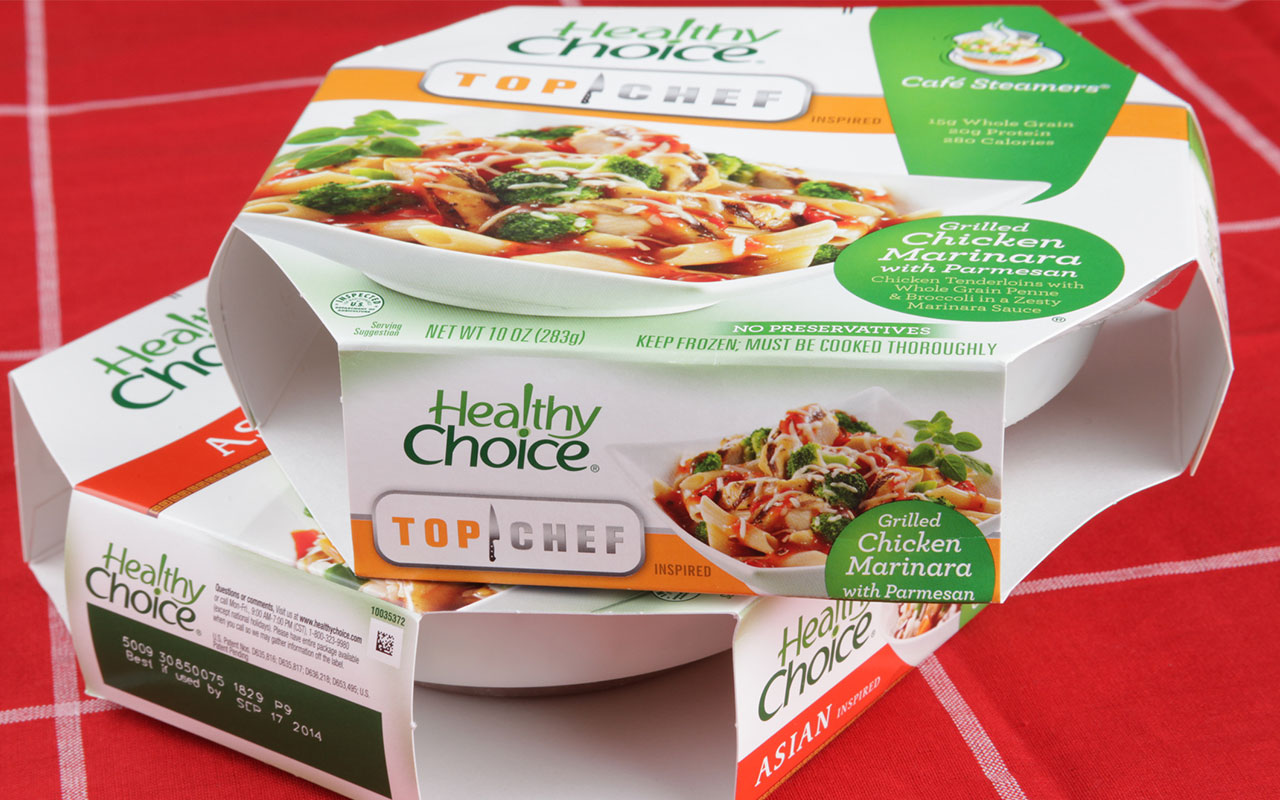
Conagra Brands
- Share price: $37.22
- 52-week range: $32.16-$39.43
Add food giant Conagra Brands (CAG) to the list of companies aiming to shrink their way to greater prosperity. It sold its private label foods business in 2015, and followed up the next year by spinning off its potato outfit Lamb Weston. In 2017 it announced it would be selling its Wesson cooking oil brand to J.M. Smucker (SJM). Early this year Conagra decided to sell its Canadian processed fruit and vegetable division—operating under the Del Monte moniker—to Bonduelle Group.
The deal-making is part of a much bigger shakeup within the increasingly competitive food industry. Most companies in this space are looking to sell brands they can't operate effectively, and looking to buy brands that play to their core strengths. Conagra is currently working to finalize a $10.9 billion deal to acquire Pinnacle Foods, and in February it closed on the purchase of Sandwich Bros. of Wisconsin.
Conagra is arguably moving in the right direction; most of its major sales and purchases have likely already been completed. Analysts are at least mindful that the company will end up healthier as the reconfiguration takes hold. To what extent or when Conagra will be better off, though, isn't yet certain.
Profit and prosper with the best of Kiplinger's advice on investing, taxes, retirement, personal finance and much more. Delivered daily. Enter your email in the box and click Sign Me Up.

-
 The Cost of Leaving Your Money in a Low-Rate Account
The Cost of Leaving Your Money in a Low-Rate AccountWhy parking your cash in low-yield accounts could be costing you, and smarter alternatives that preserve liquidity while boosting returns.
-
 I want to sell our beach house to retire now, but my wife wants to keep it.
I want to sell our beach house to retire now, but my wife wants to keep it.I want to sell the $610K vacation home and retire now, but my wife envisions a beach retirement in 8 years. We asked financial advisers to weigh in.
-
 How to Add a Pet Trust to Your Estate Plan
How to Add a Pet Trust to Your Estate PlanAdding a pet trust to your estate plan can ensure your pets are properly looked after when you're no longer able to care for them. This is how to go about it.
-
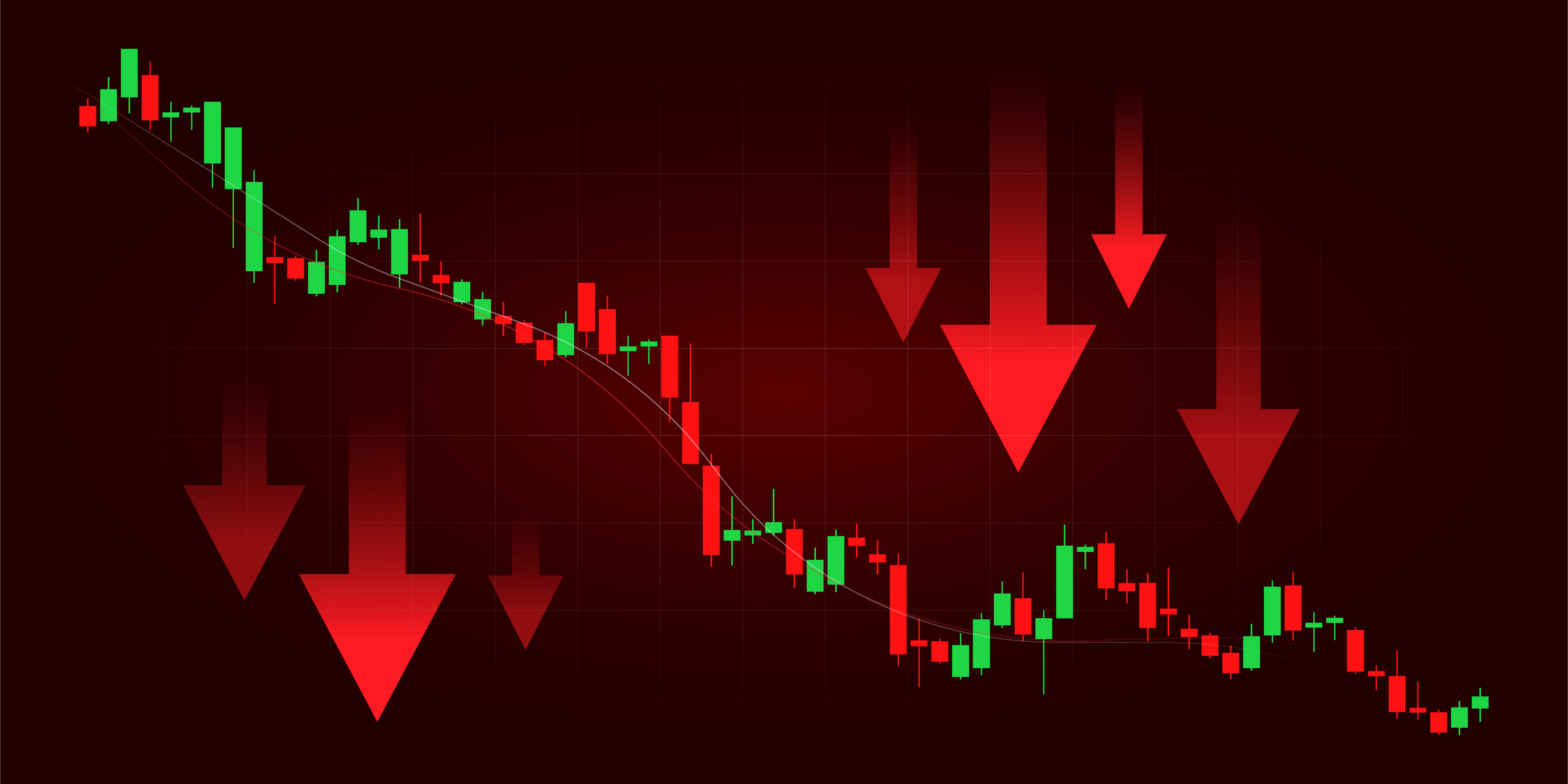 Stocks Are Up and Down on Fed Day: Stock Market Today
Stocks Are Up and Down on Fed Day: Stock Market TodayIn another sign of changing times, JPMorgan has partnered with Coinbase to enable cryptocurrency purchases with credit cards.
-
 4 Turnaround Stocks to Consider – and 2 More to Keep an Eye On
4 Turnaround Stocks to Consider – and 2 More to Keep an Eye OnA turnaround stock is a struggling company with a strong makeover plan that can pay off for intrepid investors.
-
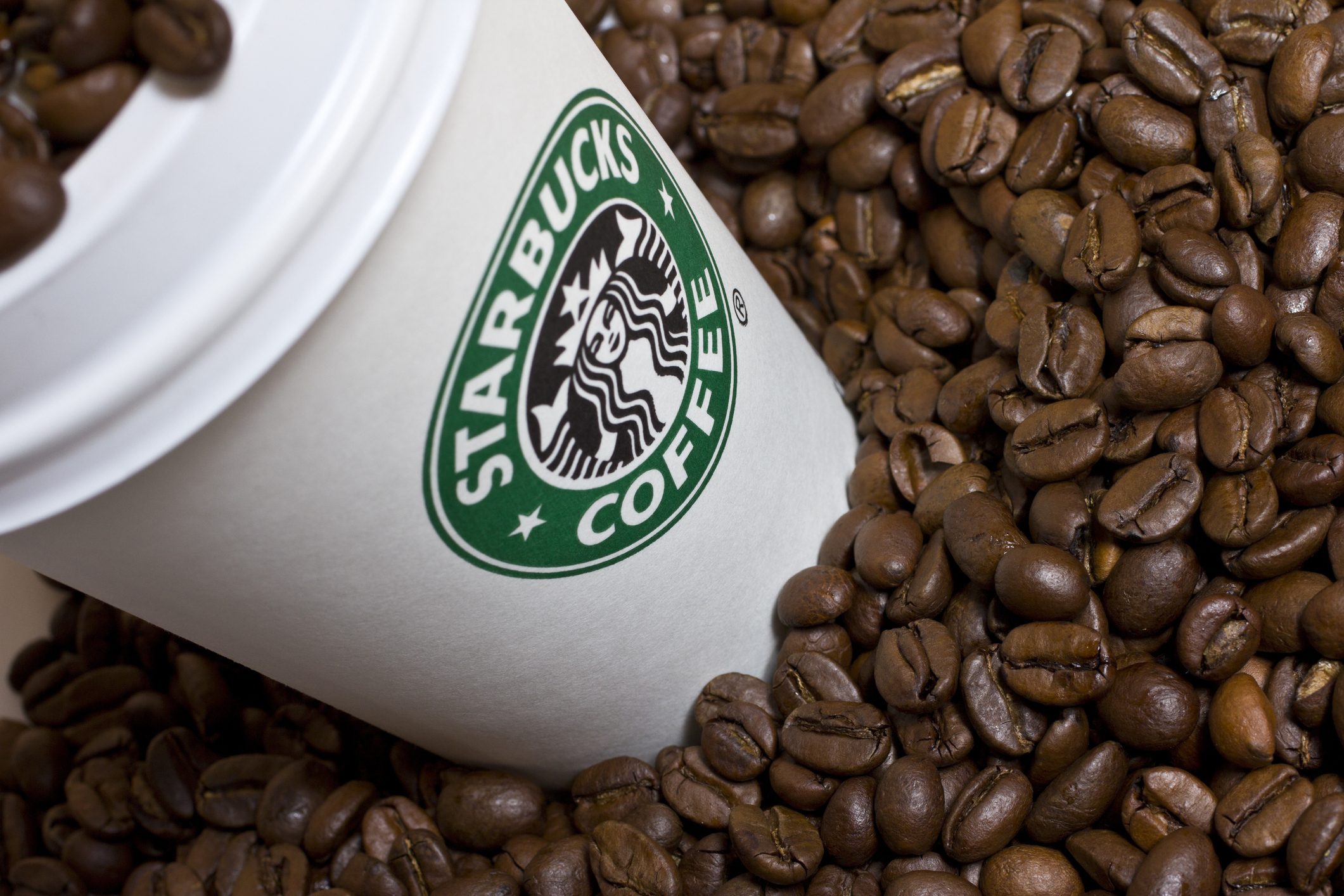 Starbucks Stock Pops as Turnaround Efforts Lead to Earnings Beat: What to Know
Starbucks Stock Pops as Turnaround Efforts Lead to Earnings Beat: What to KnowStarbucks stock is higher Wednesday after the coffee chain beat expectations for its fiscal first quarter as its "Back to Starbucks" efforts take shape.
-
 The 24 Cheapest Places To Retire in the US
The 24 Cheapest Places To Retire in the USWhen you're trying to balance a fixed income with an enjoyable retirement, the cost of living is a crucial factor to consider. Is your city the best?
-
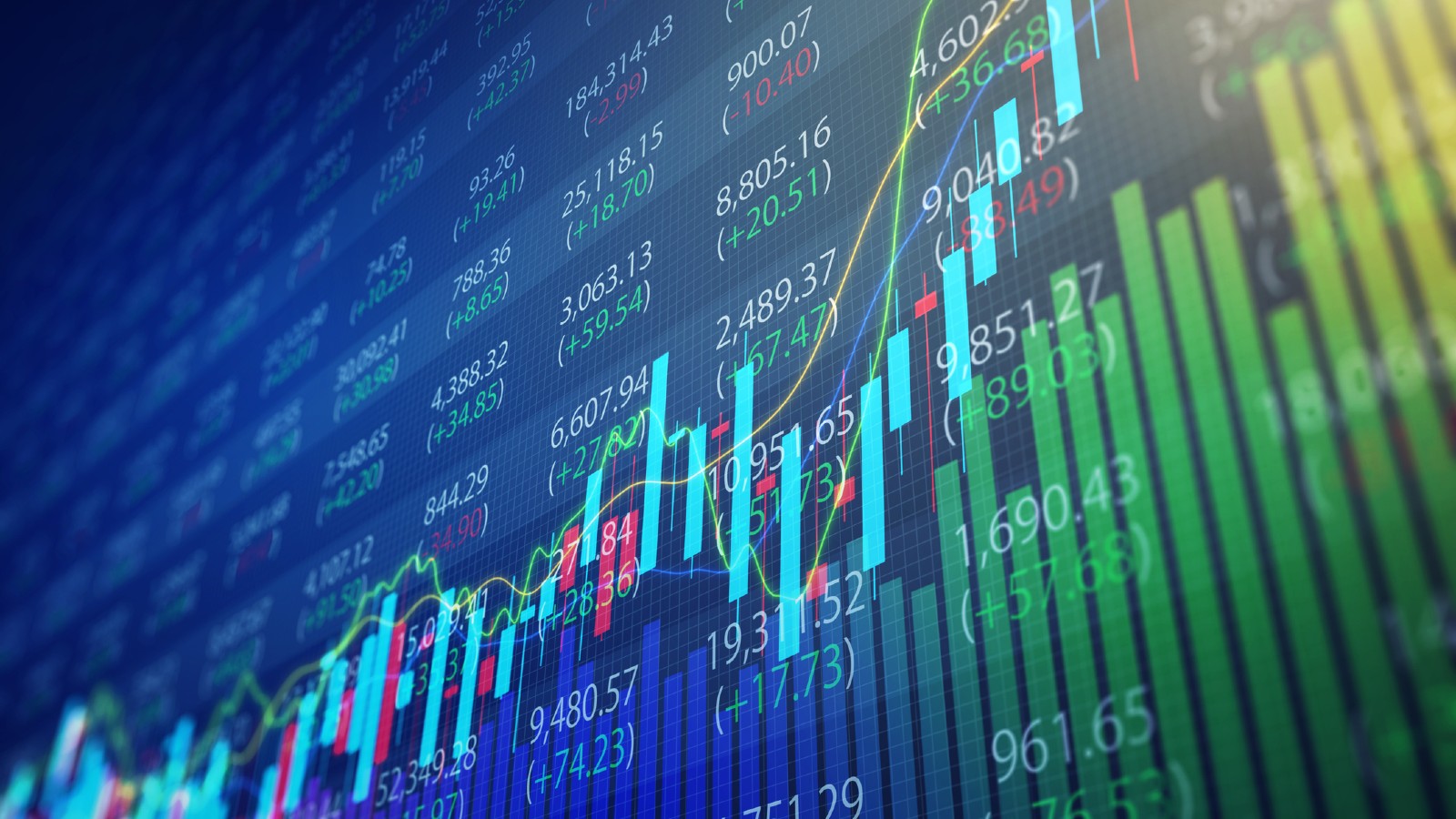 Stock Market Today: Markets Waver as Inflation Continues to Ease
Stock Market Today: Markets Waver as Inflation Continues to EaseStocks gave up early gains as waning consumer price inflation leaves rate-cut bets essentially unchanged.
-
 What's Behind Starbucks Stock's New Sell Rating?
What's Behind Starbucks Stock's New Sell Rating?Starbucks stock has rallied hard since Brian Niccol was tapped as the coffee chain's new CEO, but one analyst thinks turnaround plans will be costly.
-
 Stock Market Today: Mixed Earnings, Election Worries Weigh on Equities
Stock Market Today: Mixed Earnings, Election Worries Weigh on EquitiesA mixed batch of corporate reports and rising election anxiety led to another down day for stocks.
-
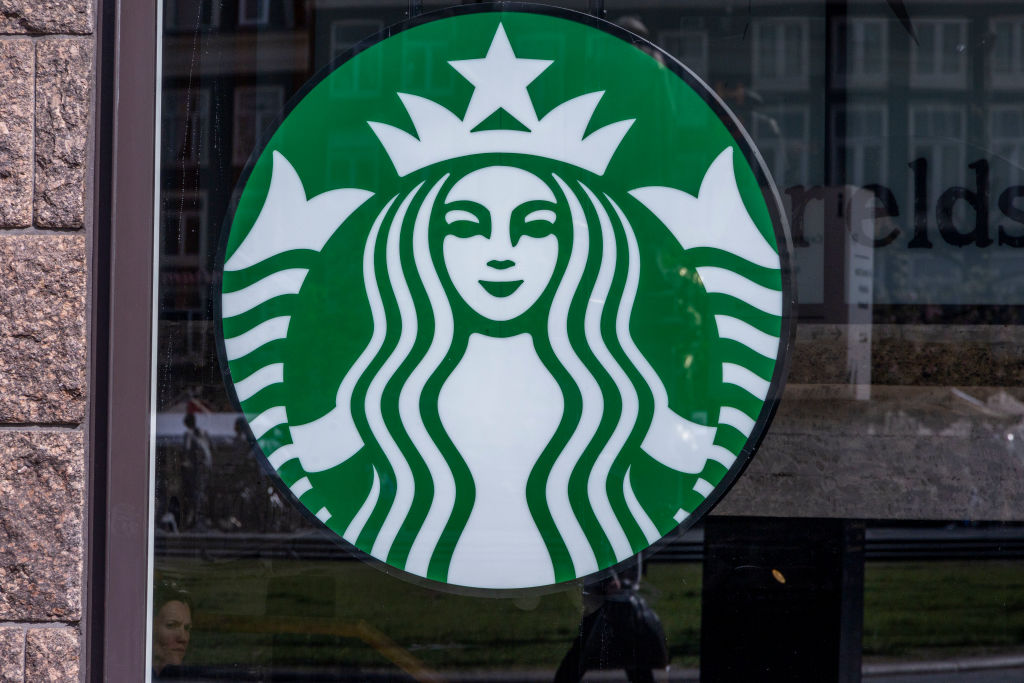 What Starbucks' Latest Dividend Hike Means for Investors
What Starbucks' Latest Dividend Hike Means for InvestorsStarbucks disclosed preliminary Q4 results and suspended its full-year guidance, but also extended its long history of dividend hikes. Here's what you need to know.
